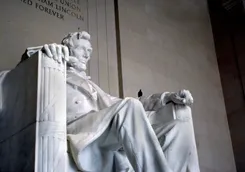
Strategies for Coping with Political Uncertainty
Our current political climate is creating high levels of uncertainty and fear within our communities. Some kids are afraid to go to school and some patients are cancelling appointments for needed medical care or no longer able to access the care they seek. Without a doubt, there is a sense of tension in the air.
We are constantly bombarded by information about what is going on in our country and the world. Much of it is outside of our control, which fosters feelings of helpless and hopelessness. In light of this situation, I’ve assembled some tips on how to cope with political uncertainty.
1. Set Healthy News & Social Media Boundaries
Constant exposure to political news can heighten anxiety. Try these strategies:
✅ Set time limits for news consumption (e.g., check updates once or twice a day instead of scrolling all day). Avoid leaving the TV set to news channels as background noise. Instead, listen to the OCB Relax Music channel on YouTube.
✅ Follow reliable sources rather than emotionally charged clickbait.
✅ Take breaks from social media when it becomes overwhelming.
2. Focus on What You Can Control
Uncertainty often makes us feel powerless. Shift your focus to actions you can take:
- Stay informed, but don’t obsess over things beyond your influence.
- Engage in activism or volunteering if you feel passionate about a cause. Although Mahatma Gandhi is often incorrectly credited with the proverb “Be the change you wish to see in the world,” this sentiment does reflect Gandhi’s philosophy of personal responsibility and the idea that individual actions can lead to broader societal change.
- Prioritize daily routines to create a sense of stability.
3. Manage Anxiety with Mindfulness & Self-Care
When the world feels chaotic, grounding techniques can help:
🧘 Deep breathing & meditation – Practicing meditation using apps like Smiling Mind or Calm can guide you.
📖 Journaling – Write about your worries and reflect on what you can do.
🌳 Time in nature – A walk outside can be a powerful reset.
🎨 Creative outlets – Art, music, and hobbies can help process emotions.
4. Encourage Healthy Conversations
For parents, educators, and young people, open conversations about politics can be constructive:
🗣️ Teach critical thinking and media literacy.
💡 Encourage respectful discussions, even with differing viewpoints.
❤️ Validate emotions—anger, frustration, and worry are all normal responses.

5. Seek Support When Needed
If political anxiety is affecting your daily life, it’s okay to seek help:
- Talk to a trusted friend, teacher, or therapist.
- Join a support group or community where you can share concerns. Remember, you are not alone in your worries.
- Engage in activities that reinforce hope and connection. Advocate for the causes you believe in, volunteer your time to help the disadvantaged, and support businesses and organizations that align with your values.
Final Thoughts: Building Resilience in Uncertain Times
Uncertainty is an unavoidable part of life, but learning how to navigate it can make you stronger. By setting boundaries, focusing on what you can control, and practicing self-care, you can maintain a sense of stability even in a rapidly changing world.
For teens, college students, and parents alike, resilience isn’t about ignoring reality—it’s about finding ways to stay informed, engaged, and mentally well. If political stress is affecting your mental health, you’re not alone. Reach out for support, take breaks when needed, and remind yourself that your well-being matters.
Remember that even when things seem bleak, “this too shall pass.” Focus on what you can control, your actions. A small act of kindness, which may seem insignificant, can create a ripple effect. “Little actions create a movement.” Or stated more simply, small acts, when done consistently and collectively, can lead to a larger social or political change. Be the change. 💙
